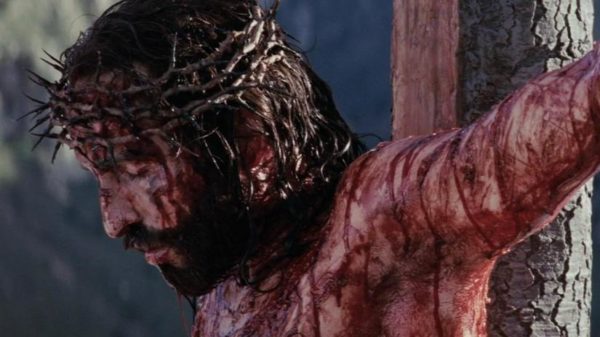Samuel Brace on the four best faith-based films of the 21st Century so far…
With the Easter weekend, many film fans and movie lovers will be assessing which faith-based films they would like to consume over the period. History is riddled with excellent offerings, but for this particular article, I thought it prudent to run down the four best faith-based films (biblical and otherwise) of the 21st Century so far – if nothing else to make the task more manageable. Being Easter, the below films will be solely of a Christian nature but are not exclusively pertaining to the Passion.
Last Days in the Desert
“A lie hurts the person who tells it.”
Perhaps the least known and certainly least seen entry occupying a spot on this list, Last Days in the Desert starring Ewan McGregor is nonetheless a deserving contender. This artistically inventive film (the first of two Biblical entries here), offers typically stunning cinematography from Emmanuel Lubezki while telling the tale of Christ wandering through the Desert and his torment at the hands of Satan. Last Days in the Desert is instantly unique with McGregor playing both Jesus and Lucifer – a decision seemingly made in order to show the Enemy’s insidious and conniving nature. It’s a simple film, sparse like the desert in which Christ finds himself occupying, and is full of unexpected decisions throughout its minimal 1hr 38 minute running time. The crucifixion makes a brief, ethereal appearance and is all the more impactful because of it, but its Christ’s journey and anguish in the desert that takes centre stage, providing for a dreamlike cinematic experience.
Hacksaw Ridge
“I don’t know how I’m going to live with myself if I don’t stay true to what I believe.”
The first of two Mel Gibson entries on this list, Hacksaw Ridge is a truly powerful WWII movie, visceral in all the ways one would expect from a Gibson picture. Hacksaw Ridge tells the true story of a Christian conscientious objector, Desmond Doss (Andrew Garfield), who joins the military as a medic, refusing to fire a gun – much to the distress of his commanding officers and fellow soldiers. The gruesome war violence depicted is perfectly balanced with its message of faith and the importance of not giving up one’s values and beliefs no matter the pressure you’re under to do so. Hacksaw Ridge, also starring Vince Vaughn and Sam Worthington, is incredibly moving, not for the faint hearted, and a wonderful depiction of a kind of heroism not often seen in the war genre. For those that can stand the brutality of its most pivotal scene, viewers will be rewarded with a touching story of belief and principle, and a tale that beautifully depicts the natural marrying of patriotism and faith.
Silence
“It was in the silence that I heard Your voice.”
Andrew Garfield was on a role in 2016, following Hacksaw Ridge with, if it’s possible, an even more emotionally potent faith based drama, this time starring in Martin Scorsese’s passion project, Silence. Garfield stars as a 17th century Portuguese priest, who along with Adam Driver, sets off in search of their missing mentor who has disappeared in Japan – rumoured to have committed apostasy. Silence doesn’t shy away from the horrors of Christian persecution at the hands of the Japanese but the misery is necessary to showcase the dire situation of our two priests, as well as the local Japanese who have been forced to abandon their faith. Silence isn’t easy to watch and the film doesn’t end with a message of hope that believers will be entirely comfortable with. However, the film is a stunning endeavour nonetheless, criminally underrated, and leaves one with a feeling that is utterly ineffable but indisputably heart-rending.
The Passion of the Christ
“Forgive them, Father. They know not what they do.”
There is no more fitting film to end on, no more fitting Easter viewing, than without question the most powerful, all be it controversial, depiction of Jesus’ final days in The Passion of the Christ. The highest grossing R-rated film to this day, Mel Gibson’s The Passion of the Christ is almost unbearable to watch, its extreme violence revolting, the suffering of Christ devastating. But this is the entire point and it’s through this torment that the film finds its immense power. No other movie presents the horror of what was done to the Christian messiah quiet like Gibson’s film. The director’s own faith is well publicised and it’s axiomatic that it was his intention to make audiences suffer along with his saviour. There is nothing held back here, it’s abhorrent, but it’s necessary to show the unbelievable sacrifice of Christ. He died in extreme agony, loving and forgiving his mutilators – the power of the moment depicted on screen is undeniable and when fused with the most cinematic depiction of the Passion ever brought to film, it’s hardly a mystery why this feature has claimed its lofty place in history.
Samuel Brace
















